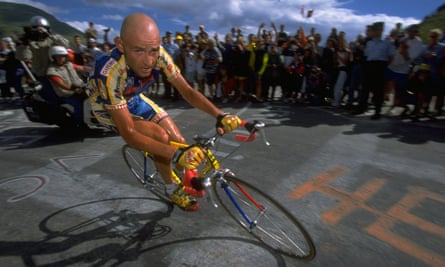Windrush: A Family Divided (BBC Radio 4)
Janey Godley: The C Bomb (BBC Radio 4)
The Skewer (BBC Radio 4)
Sport’s Strangest Crimes (BBC Sounds)
It was the 75th anniversary of the Empire Windrush docking at Tilbury last Thursday: certainly reason enough to listen to Radio 4’s engaging series, Windrush: A Family Divided. In it, married couple Robert and Jennifer Beckford are working through a family disagreement. Which is: should they stay or should they go? Robert, son of Windrush immigrants, is positive about Britain, and believes that he, Jennifer and their two teenage children should remain here. Jennifer, who’s Jamaican-born but grew up in the UK, thinks that they should all move to Jamaica.
Jennifer’s argument is manyfold but boils down to: why should Caribbean people use their talents to bolster the country – Britain – that colonised their own? Shouldn’t they bring their skills to their own countries and build them up instead? She is eloquent and positive, a wonderful speaker. But Robert is too. He argues that the life they have in the UK is a good one; that, in Jamaica, it’s harder to earn a decent living; violent crime is higher there; the health service isn’t so reliable; there are fewer job opportunities.
Written down, this intermarriage rolling dispute might sound dry or domestic. But this series is neither. Over four episodes, Robert and Jennifer are each introduced to people who might change their minds (though it would take a lot to persuade Jennifer, you sense). I loved Blossom, in the opening episode, who didn’t go out on the Windrush but stayed in Jamaica and made a successful living. Her uncle did, and she heard about his new life. “Taking a beating for being inferior,” says Blossom. “But he [knew] that if he was in his country, he would take his cutlass and really deal with anybody who did that to him! So it was quite a frustration.” Now, she says, if people of Caribbean heritage come to live in Jamaica, they will succeed, with one proviso: “As long as you are cool.”
Both Robert and Jennifer have evidence to back up their different stances; each makes their case beautifully. Listening to them, I found myself flipping between their two positions – which is, of course, the point. The whole series is a clever way of airing all the complicated sentiments that people from colonised countries feel when they settle in the so-called “mother country”. I highly recommend it.
Watch out world! Here’s the hilarious Janey Godley. She’s got a 6.30pm show on Radio 4 and she’s gonna use it. She is such a force of nature, Janey. You may remember her as a solo figure standing with a sign TRUMP IS A CUNT when the orange one visited his Scottish golf course. Perhaps you enjoyed her hilarious spoof voiceovers of political figures during Covid. Or saw her talking about her terminal ovarian cancer on social media. However you came across her, you won’t have forgotten her.
Her new show, The C Bomb, is, she says, not about the C word on her Trump poster, nor about her cancer. It’s not even about being cancelled. The C stands for counselling, which she’s finally got round to having in the past few months. To be honest, it could stand for anything she likes, because what Janey brings to her packed half-hour show are other C words, ones so often missing in the 6.30 funny slot: confidence and charisma. Many comedians are too vanilla to make any impression on the listener, dutifully scripting their shows with nicely constructed jokes and witty puns that land with a barely registrable whisper from the airwaves. Comedy is so much more than clever writing. It’s about sweeping up an audience and whisking everyone off to a virtual party, a hilariously fun night out. And Janey does this every time. She sells herself hard; her jokes, too. Good on her.
Another genuinely funny Radio 4 show is multi-award-winning The Skewer, back for its ninth series last week. What a brilliant show this is: a cut-up-and-mashup of the news, often more art piece than audio piece. Jon Holmes, who’s behind it, encourages new writers to contribute and the whole thing zips past like a short fever dream, a warped, revealing nightmare reality.

The Skewer and Windrush: A Family Divided give a sense of where we are as a country – what we value, what we dismiss, who we love, who we despise. (So, last week, have Radio 2 and 6 Music, both broadcasting live from a Somerset field, bringing us the highlights of Glastonbury, the mud-encrusted Proms.) Now a show about a more international hero. BBC Sounds has brought out another of its Sport’s Strangest Crimes series. The previous one discussed Formula One racing and featured Pete Tong as host, an exceptionally weird booking that did not sell the show well. This time around, the crime concerns Marco Pantani, the wonderful Italian cyclist who died from a drug overdose in 2004. And our narrator is … Hugh Dennis.
Hmm. I was prepared to be sniffy. Why can’t the BBC employ someone actually relevant to the topic? But Dennis addresses the question directly in his opening few lines (answer: he’s a keen cyclist, a regular Sunday-outing Mamil). And he delivers the script perfectly, plus he’s clearly inserted a joke or two of his own. And all the right experts are here: Phil Liggett, the veteran cycling commentator; Matt Rendell, who wrote the definitive Pantani biography. We could quibble over 10 – 10! – episodes on the topic: surely at least four too many for a subject that’s been picked over for years by anyone with an interest in cycling. But Dennis, it must be said, is great.

